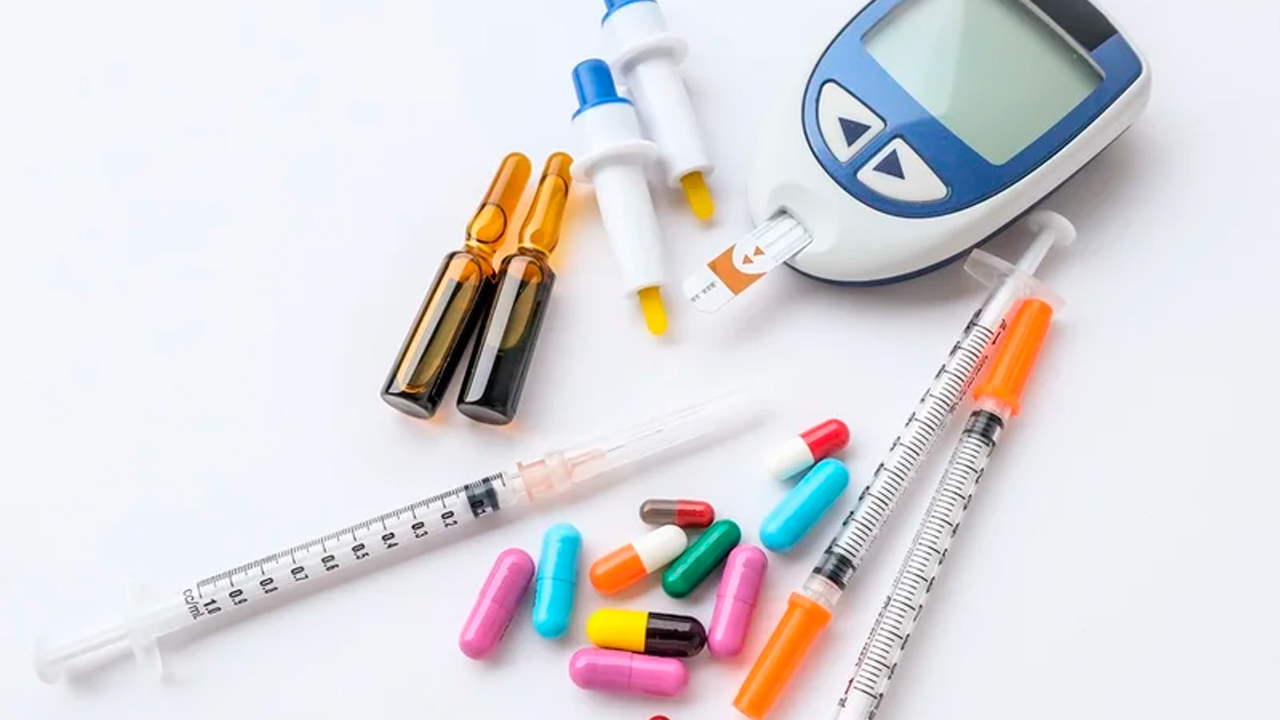Although Type 2 diabetes can be caused by an unhealthy lifestyle, things like exercise and healthy eating are not enough to manage or control and keep blood sugar under check. Patients have to take some kind of medicine or drugs to balance their blood sugar levels. Generally, patients take drugs or insulin to control their blood sugar levels. As uncontrolled blood sugar may lead to things like kidney problems, heart problems, nerve damage, vision problems, etc.
But most of us often get confused about which type of medicine is right for us, pills or insulin. So here are the things you should know before you talk about it with your doctor.
If you are recently diagnosed with Type 2 diabetes, your doctor might recommend some pills and lifestyle modifications to manage your blood sugar. These are called antidiabetic drugs, they don’t replace insulin but help make more insulin, use it effectively, and lower blood sugar levels.
Antidiabetic drugs
- Metformin is the most prescribed medicine for Type 2 diabetes. Metformin lowers the amount of blood sugar that your liver makes and helps your body use insulin more effectively. However, his drug is contra-indicated with liver disease, kidney problems, heart failure, and alcohol.
- Sulfonylureas class of drugs helps your body make more insulin. They may cause weight gain and lower blood sugar.
- Meglitinide drugs help your pancreas release more insulin, they do this faster than sulfonylureas but act for a shorter duration of time.
- Thiazolidinediones help the effective use of the insulin produced by the body by making the body more sensitive to it. However, due to their severe side effects like heart failure and anemia, they are only prescribed when other drugs don’t work.
- Sodium-glucose cotransporter 2 inhibitors refrain your kidneys from absorbing glucose, thereby lowering blood sugar. Its side effects include low blood pressure and diabetic ketoacidosis.
- GLP 1 Receptor Agonist helps your body make more insulin after you eat. This helps in keeping blood sugar down after having the meal.
Insulin for diabetes
If pills are not enough to control your elevated blood sugar, the doctors may prescribe you insulin. There are several types of insulin available in the market and they all work differently. Long-acting, Intermediate-acting, Short-acting, and Rapid-acting Insulin are available. You can take insulin in different ways.
Syringe – This is taken by loading insulin into the syringe and injecting it under the skin.
Pen – They are more comfortable than syringes, they come as prefilled and are less painful.
Jet injectors, Insulin infusers, and Insulin pumps are other ways of taking insulin.
Which type of treatment plan is best for you should always be a joint decision between you and your medical practitioner. Doctors might recommend the management plan on the basis of the type of diabetes you have, the status of insulin your body produces, and how long you had it.
Both of these have their pros and cons, that is their potential side effects, and advantages. Regular monitoring is essential in this. In addition to pills or insulin, lifestyle modification also plays a vital role in diabetes management. So, keep living a healthy lifestyle and not just rely on pills.
(Disclaimer: The content on this site is for informational purposes only, and should not be taken as professional medical advice. Always seek the guidance of your doctor or other health professionals for any questions you may have regarding your health or a medical condition.)

 Of the various factors that contribute to diabetes, a sedentary lifestyle and improper intake of food constitute the major ones. Thus, along with drugs, insulin, or any other treatment plans, patients have to work on their lifestyle factors also as it plays a vital role in diabetes management.
Of the various factors that contribute to diabetes, a sedentary lifestyle and improper intake of food constitute the major ones. Thus, along with drugs, insulin, or any other treatment plans, patients have to work on their lifestyle factors also as it plays a vital role in diabetes management.



















.jpeg)











.jpg)




.jpg)


